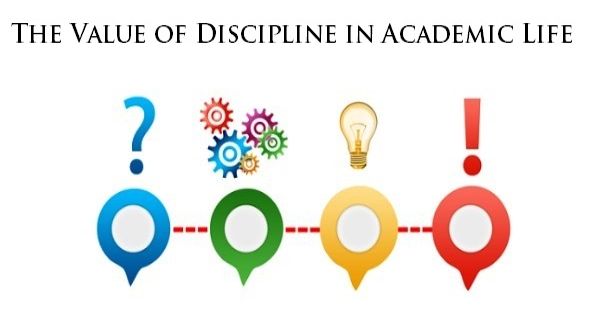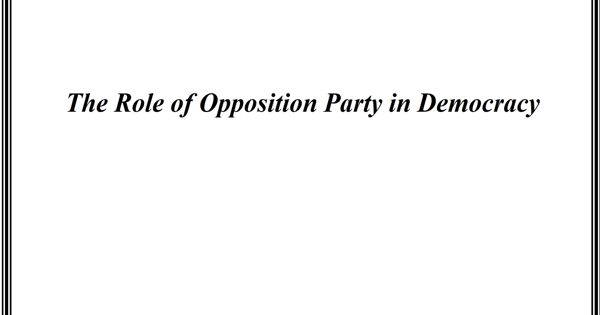The Value of Discipline in Academic Life
Discipline implies the subordination of one’s personal will to the control of some external authority. It may be the authority of an individual directly, or as embodied in rules and regulations. It is essential wherever many have to live or work together in a collective or co-operative manner, for the absence of control will lead to confusion or anarchy. In educational institutions, it is more than ever necessary, for young people are by nature gifted with high spirits which make them self-assertive, willful, and impatient of restraining. Unless their natural ebullience is held in some sort of check, their minds cannot be canalized to any purposeful ends. In such a start they may be easily led astray or be a hindrance to others. Hence every institution must have a minimum set of rules and directions. They are meant to fix the hours of work and play, the norms of conduct and behaviors, and the ways of doing things in the discharge of their duties. The ultimate aim is to instill in their minds this unalterable maxim: each is for all and no one for oneself. In other words, the individual must sacrifice his personal will to the demands of corporate life.
But it is wrong to regard discipline from a negative standpoint as it is very often done. Discipline is not an affair do mere denial of personal freedom, for freedom is too valuable an asset – particularly for the healthy growth of youthful minds – to be dealt with in this cavalier fashion. The object of discipline is not a denial of freedom but its proper direction and regulation. An ‘uncharted freedom’ is likely to become wasteful and dangerous. The proper attitude should be to enforce the observance of rules in order that the individual’s caprices may not interfere with the work of others in any way. Rowdy’s in the college corridors or quadrangle, disturbances in the classroom, refusal to abide by the rules of the library, disobedience of constituted authority – these are hostile to serious work without in any way being helpful to the healthy spirit of freedom or necessary for the growth of an individual. Hence whatever orders are issued or rules are prescribed to eliminate this undesirable expression of individual intransigence must be respected voluntarily. If they are not, they have to be enforced by authority and any punitive actions necessary for this purpose never appear to be accepted with good grace.
True discipline is a creative process. Its ultimate object is not merely to liberate the mind, but to liberalize it. By voluntarily accepting a prescribed code of conduct, one becomes so habituated to thinks and cat that one unconsciously develops a proper attitude to life – that it is not enough for one to be conscious of one’s rights, but one must at the same time be conscious of one’s duties. Hence enforcement of discipline must be accompanied by recognition of its proper end: this is not only to act as a check on the erring, but bat also to be an intelligent guide to correct conduct. The student involved must be persuaded to see that he cannot exercise any right himself unless he is at the same time conscious of his duties to others. In a corporate society, it will be necessary to subordinate his rights in the discharge of his duties. Once this realization develops, the acceptance of discipline becomes easy and voluntary. What was at first grudgingly yielded to compulsion will now be gladly accepted in a wholesome spirit of co-operation. This Is what is meant when it is said that discipline is an educational process, and its aim is to make one act in a proper manner out of a spontaneous consciousness of one’s duties and obligations to others. No discipline is worthwhile unless it can serve this purpose.
Hence discipline is to be regarded not as an end but a means to an end. Where discipline is looked upon as an end, it is likely to achieve that dead monotony of lifeless habit, where initiative is discouraged, originality is stifled and mechanical conformity to certain codified directions is the be-all and the end-all of life. If it ensures, the peace it is the peace of death. But true discipline is the voluntary acceptance of authority in order to avoid wastage of energy and to contribute one’s energy to the growth of corporate life. one accepts restraints in order to enjoy freedom. One who obeys orders is alone fitted to command others. Discipline is thus the way to the nobler conception of life and its duties.
We are passing through a period of acute and, perhaps, undesirable restlessness. It is a reflection of the spirit of the time. Rules and routines in academic life had become too mechanical and often meaningless. But it has done one good – it has made both student and educationists think seriously through a creative process. What we think today will lead to the activation of the morrow. We have allowed things to drift for too long. The system of the British das that touched only the outer fringes of society is continuing today when the inner core has become active and articulate. If student’s restlessness has made society thoughtful and interrogative, it has roused us from our stupor of indifference that is enough, for it has created the climate for a rational change
















